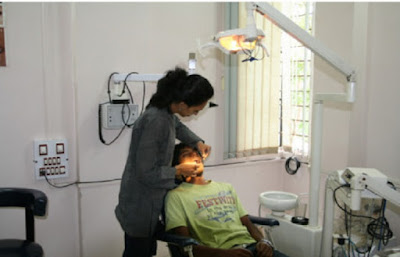Best Health Science Institute for Nutrition and Dietetics!
Symbiosis Institute of Health Sciences is affiliated with Symbiosis International University and has AICTE approval. The college has Maharashtra Medical Council accreditation to host CME lectures, workshops, and other events. There are several nutrition courses in Symbiosis Pune at academic levels, including undergraduate, graduate, and diploma. In order for healthcare professionals to survive in this era of intense competition and specialisation, SIHS has developed and put into action a number of professional up-gradation programmes.
Through its distinctive, cutting-edge, and career-focused programmes, SIHS aims to develop a cadre of professionals who will guarantee the provision of top-notch medical care. One such degree, the M.Sc. Clinical Nutrition and Dietetics, lasts two years and offers a variety of specialisations. The specialities are concentrated in the relevant fields to give the students the necessary abilities for both their academic and job prospects today.
Msc Nutrition and Dietetics Symbiosis curriculum offers cutting-edge career-oriented specialties in fields like nutrigenomics, clinical nutrition, and public health nutrition. In order to educate and train the students in the particular fields through academics and research-based education and improve their professional prospects, these specialisations offer concentrated and tailored courses in certain areas.
In order to be eligible for Symbiosis Msc food and nutrition candidates must have earned a minimum of 50% on their graduation exams in the Life Sciences from any statutory university. Candidates who will be taking final year exams are also eligible to apply, although admission will be contingent on passing the qualifying examination with a minimum grade of 50%.
The goal of the Masters in Nutrition and Dietetics in India is to prepare students to apply the principles of nutrigenomics to a variety of societal contexts in order to comprehend and address pressing issues in food safety, quality management in the food industries, clinical nutrition, public health nutrition challenges, policy advocacy, and the management of non-communicable diseases. Additionally, the MSc Clinical Nutrition and Dietetics programme in India includes a variety of multi- and transdisciplinary courses that are created to suit professional standards and other requirements.
The future of Masters in Nutrition and Dietetics in India is promising. Demand and specialty define M.Sc. Nutrition and Dietetics job chances in India. The compensation for an M.Sc. in Nutrition and Dietetics is high due to the great demand for these degrees. The average salary for an M.Sc. in nutrition and dietetics in India is INR 3–10 LPA, according to Payscale. A lot of variables affect an employee's starting pay when they begin a new job. Some of the characteristics that affect income after earning an M.Sc. in Nutrition and Dietetics are contribution to the field, communication skills, area of specialisation, and expertise in the area of specialisation. Candidate options for employment after completing the M.Sc. in Nutrition and Dietetics degree are numerous. After completing the course, students have two options: find employment or continue their studies.
The M.Sc. programme in nutrition and dietetics' scope is growing quickly and is probably going to keep doing so in the foreseeable future. Graduates of the M.Sc. in Nutrition and Dietetics degree can find employment in both the public and private sectors in a wide range of positions.




Comments
Post a Comment